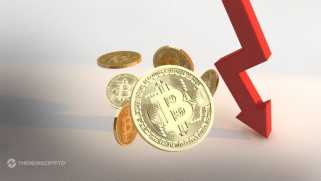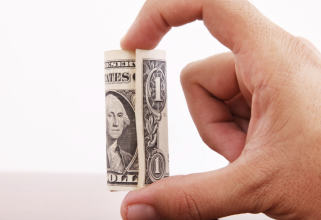
Meme Coins: A Journey from Joke to Investment
Meme coins, initially conceived as internet humor, have unexpectedly gained traction and established their credibility. The success of pioneers such as Dogecoin and Shiba Inu paved the way for substantial projects with defined roadmaps, dedicated teams, and active communities. However, this popularity has also attracted a wave of opportunistic imitators, resulting in a proliferation of meme coins that often defraud investors and vanish, leaving behind only disillusionment.
In this article, we explore the concept of meme coins, discuss how to create one, and provide guidance on identifying fraudulent projects.
What is a Meme Coin?
Meme coins are cryptocurrencies that typically originate as jokes or memes but often accumulate substantial followings and market value. Unlike traditional currencies like Bitcoin or Ethereum, which emphasize decentralization and utility, meme coins frequently revolve around internet humor, viral trends, and community-led hype. They lack inherent value, gaining worth through speculation, community involvement, and extensive social media promotion.
Factors Driving the Popularity of Meme Coins
- Internet Culture: Meme coins capitalize on the viral nature of internet culture. They often emerge as humorous or satirical takes on conventional finance, swiftly gaining attention through social media.
- Community Involvement: Meme coins thrive on the enthusiasm of their communities. Collective excitement and participation by users fuel interest and value.
- Low Entry Barrier: With their often negligible initial cost, meme coins provide a low-risk opportunity for novice cryptocurrency investors, attracting a diverse range of participants.
- Celebrity Endorsements: Endorsements from celebrities and influential figures can significantly elevate the profile and market value of meme coins, making them lucrative short-term investments.
- FOMO and Speculation: The fear of missing out (FOMO) and speculative trading contribute to the rapid price fluctuations and volatility observed in many meme coins.
Are Meme Coins a Sound Investment?
While meme coins offer the potential for substantial returns, they also carry significant risks. Their value is primarily driven by hype rather than fundamentals, making them highly volatile. For every successful meme coin, there are numerous others that fail, resulting in substantial losses for investors. Prospective investors should approach meme coins with caution, acknowledging the potential for profit while recognizing the equally high risks involved.
How to Create a Meme Coin from Scratch
Creating a meme coin involves several key steps from conceptualization to launch and beyond. Here's a comprehensive guide to transform your meme coin idea into reality:
- Conceptualization: Begin with a distinctive concept that aligns with a specific meme or cultural trend. Choose a memorable name and develop a fun, engaging brand identity. Your meme coin should possess a distinct theme that resonates with your target audience, similar to Dogecoin's whimsical nature or Shiba Inu's canine appeal.
- Technical Development: Select a blockchain platform for building your meme coin. Ethereum and Binance Smart Chain are popular choices due to their large user bases and well-established ecosystems. Draft a smart contract for your token using a standard like ERC-20 (Ethereum) or BEP-20 (Binance Smart Chain). Utilize development tools such as Remix or Truffle to code and deploy your smart contract. Ensure the security and auditability of your code to prevent vulnerabilities.
- Tokenomics Design: Define the total supply and distribution strategy for your meme coin. Determine the allocation of tokens for the team, marketing, community incentives, and liquidity. Consider implementing airdrops or staking rewards to attract and engage users. Establishing a liquidity pool on decentralized exchanges like Uniswap or PancakeSwap is crucial for enabling trading.
- Legal Considerations: Consult with legal experts to ensure compliance with local and international regulations. Ascertain whether your meme coin project requires registration with financial authorities, particularly if you intend to raise funds through token sales.
- Marketing Strategy: Develop a comprehensive marketing plan to generate awareness and attract users. Create a professional website detailing your meme coin's purpose, roadmap, and purchase instructions. Establish a presence on social media platforms such as Twitter, Reddit, and Discord. Engage with influencers to promote your meme coin and stimulate interest.
- Community Building: Foster a dynamic and engaged community around your meme coin. Utilize social media to interact with users, conduct AMAs (Ask Me Anything), and organize events such as meme contests or virtual meetups. Regularly update your community on the project's progress and future plans to maintain interest and trust.
- Launch and Post-Launch Activities: Launch your meme coin through an Initial DEX Offering (IDO) or airdrop. Provide liquidity on your chosen decentralized exchange to facilitate trading. Monitor your meme coin's performance and maintain engagement with the community. Address any issues promptly and offer regular updates to ensure the ongoing success of your project.
Are All Meme Coins Scams?
Not all meme coins are fraudulent. While some may be created solely to exploit market sentiments, others have clear roadmaps and are actively working to enhance their ecosystems. Legitimate meme coins often feature transparent teams, well-defined use cases, and ongoing development efforts. Projects like Dogecoin have established robust communities and continue to evolve beyond their initial humorous origins.
How to Identify Fraudulent Meme Coins
Discerning between legitimate and fraudulent meme coins requires vigilance and scrutiny. Be wary of projects lacking legal frameworks, poorly defined tokenomics, or absence of post-launch activities. Such projects often operate as pump-and-dump schemes, aiming to exploit investor enthusiasm and abscond with profits. Key red flags include:
- Absence of Legal Framework: Legitimate projects adhere to legal requirements and typically provide clear documentation regarding regulatory compliance.
- Inadequate Tokenomics: A lack of detailed plans for token distribution, utility, and long-term value generation is a cause for concern.
- Neglect of Post-Launch Activities: Projects that vanish after the initial hype are likely to be scams. A sustainable meme coin will maintain engagement with its community and fulfill its promises.
Are Meme Coins Launched Today Safe?
While numerous genuine meme coin projects exist, the market is also saturated with scams. These projects often launch with the sole purpose of generating quick profits and defrauding unsuspecting investors. They generally involve minimal effort in development and community building. Warning signs include:
- Rapid Fundraising and Subsequent Projects: Rapid fundraising and the creation of additional projects can indicate a fraudulent scheme.
- Hype and Dump Tactics: Projects generating significant hype through social media and influencer endorsements but lacking a long-term vision or substantial development effort may be designed to dump coins on investors shortly after launch.
- Utilization of Bots and Fabricated Investors: Rumors of using bots to simulate early investment and create a false sense of demand have been associated with fraudulent projects.
Are Meme Coins a Good Investment Ultimately?
Developing a successful meme coin demands a combination of creativity, technical expertise, and effective marketing. While the potential for significant returns exists, it is essential to approach the meme coin domain with caution. Not all projects are legitimate, and scams are prevalent.


 Crypto Front News
Crypto Front News DogeHome
DogeHome Crypto Daily™
Crypto Daily™ Crypto News Land
Crypto News Land TheNewsCrypto
TheNewsCrypto CFN
CFN Crypto Daily™
Crypto Daily™ Crypto Daily™
Crypto Daily™ Crypto Daily™
Crypto Daily™






















